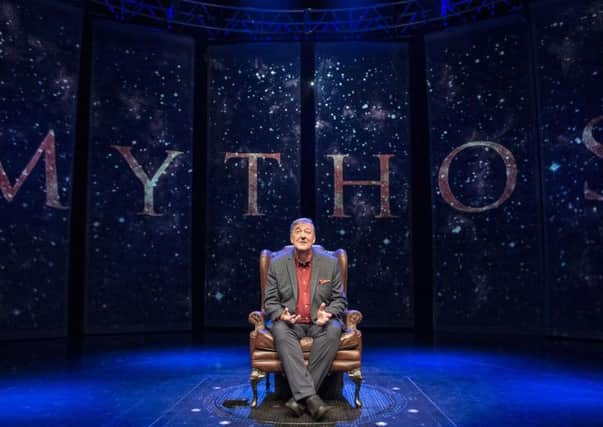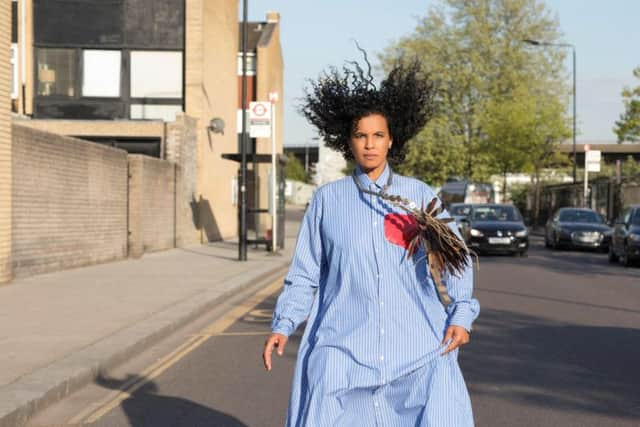Edinburgh International Festival 2019: The Scotsman critics on this year’s programme


THEATRE
JOYCE MCMILLAN
IN in EIF programme that has abandoned the idea of separate sections for theatre, opera and dance, it can be difficult, at first, to work out that the theatre programme comes in two distinct parts.


There’s the main section of the programme, which features David Hare’s new Peter Gynt - co-produced by EIF with the National Theatre in London - alongside Robert Icke’s 2018 production of Oedipus for International Theatre Amsterdam, and the European premiere of Sydney Theatre Company’s acclaimed stage version of Kate Greenville’s great Australian novel, The Secret River. There are also solo shows from two great British national treasures, Sir Ian McKellen and Stephen Fry - in Fry’s case, a trilogy adapted from his own best-selling book about the Greek gods.
Advertisement
Hide AdAdvertisement
Hide AdThat’s not all, though; because this year, in addition, there’s the programme called You Are Here, co-created by the EIF with producer Kate McGrath, and backed by the Scottish Government/ Edinburgh City Place Fund, which aims to focus on questions about what internationalism and belonging mean, for artists and audiences today. This programme features, among other events, the Nigerian women’s show Hear Word!, the European premiere of 1927’s new show Roots, and the world premiere of the new National Theatre Of Scotland stage version of Jackie Kay’s memoir Red Dust Road; along with a powerful series of forums and discussions led by the Royal Lyceum’s artistic director David Greig.
A slightly tough programme to navigate, in other words, and lacking the big blockbusting British premieres of great European shows for which Edinburgh was once famous, but designed, it seems, to take the festival’s theatre programme in the new directions that are necessary to meet the challenge of the times we live in.
CONTEMPORARY MUSIC
FIONA SHEPHERD
The festival rekindles some fond associations with this year’s rock and pop programme, not least in returning to the atmospheric Leith Theatre for a run of shows by acclaimed bands, songwriters and performers.
Jarvis Cocker returns to the festival following his Room 29 collaboration with Chilly Gonzales with a new group project, Jarv Is, promising “an experiment” and “a live experience with no barriers” among other tantalising soundbites.
The innately dramatic Anna Calvi also makes a return visit, only one of a number of strong, idiosyncratic female artists in a programme which includes first time appearances from the consistently cool pop diva Neneh Cherry, compelling performance poet Kate Tempest, This is the Kit, fronted by folk rock singer/songwriter Kate Stables, and New Jersey’s sublime Sharon Van Etten.
The much loved Scots pop maestros Teenage Fanclub play their first Scottish show since the departure of founding bassist Gerry Love, while the atmospheric Danish electronica outfit Efterklang break a seven-year silence to return with a new live band. Meanwhile, there is no mistaking cult Kiwi artist Connan Mockasin whose weird, intoxicating, psychedelic pop reveries are not to be missed.
Elsewhere, the festival also continues its patronage of esteemed folk and roots musicians, with a double bill featuring Malian duo Amadou & Mariam and gospel veterans the Blind Boys of Alabama, an appearance by Lebanese oud legend Marcel Khalife, accompanied by his son Rami, and a local/global celebration hosted by Edinburgh’s Shooglenifty and featuring their friends from Rajasthan and Galicia.
KEN WALTON
OPERA/CLASSICAL
If a touch of titillation is what raises your average festival fare above the ordinary, then Fergus Lineman has achieved that with his core classical music programme.
Advertisement
Hide AdAdvertisement
Hide AdTraditionalists may bemoan the paucity of staged opera - two productions only, Komische Oper Berlin’s Eugene Onegin and the European premiere of Missy Mazzoli’s Breaking the Waves.
But look what the Usher Hall series has in terms of concert opera: the glorious conclusion to the 4-year Wagner Ring Cycle, Götterdämmerung, with such vocal elites as Christine Goerke and Karen Cargill, and Puccini’s Manon Lescaut in the explosive hands of Donald Runnicles and Deutsche Oper.
The mighty Mahler 2 opens the orchestral series, but what should we expect of this symphonic colossus from the Los Angeles Philharmonic under glitzy maestro Gustavo Dudamel? Is this a chemistry that works? He and the LA players are in residence, so there is plenty opportunity to test the hype.
Bernstein’s West Side Story might seem an odd piece of programming, especially unstaged, but this one has the famously erudite Sir John Eliot Gardiner in charge. What on earth will the erstwhile doyen of Bach performance do with Bernstein’s feuding Jets and Sharks? There’s a teaser.
Equally tantalising are a set of concerts celebrating Sir James MacMillan at 60, including his new Fifth Symphony. The Shanghai Symphony Orchestra give a Chinese twist to Shostakovich 5, Simon Rattle is back with the LSO, and in the Queen’s Hall chamber series look out for new SCO chief conductor Maxim Emelyanychev on piano with his orchestra principals. More than just routine.
DANCE
KELLY APTER
Looking at the dance line up at this year’s International Festival, you’d be forgiven for thinking you were leafing through the Fringe programme.
Not only is there more dance than ever before (seven shows) but there is an edge to some of the work that proves, once again, that the festival is moving in an interesting direction.
Northern Irish dancer and choreographer Oona Doherty set Dance Base ablaze with the powerful Hope Hunt at the 2017 Fringe.
Advertisement
Hide AdAdvertisement
Hide AdSo it’s with much excitement that we welcome her back, with a new four-part work, Hard to be Soft: A Belfast Prayer.
Helen Pickett’s re-working of Arthur Miller’s The Crucible is also a known quantity, after a 40-minute version was toured by Scottish Ballet in 2014. Back then it showed promise, but cried out for more, which happily it now has in this full-length version.
Birds of Paradise’s 2016 show, Purposeless Movements has also toured before, but this funny and poignant look at cerebral palsy fully deserves the important platform it will now get.
Less well known in Scotland, is Peacock Contemporary Dance Company with its theatrical take on Stravinsky’s Rite of Spring, and Faso Dance Théâtre’s Kalakuta
Republik, about Afrobeat pioneer Fela Kuti. Both are exciting propositions, both visually and choreographically, taking us deep into the heart of another culture.
It’s also heartening to see the Festival continue its offer for young audiences, with Canada’s Cas Public, and keeping the work of the late post-modern choreographer Trisha Brown alive at the beautiful Jupiter Artland.